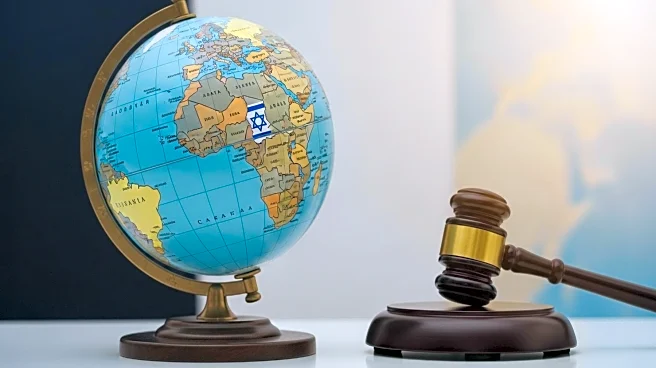What's Happening?
Caroline Glick, Foreign Policy Advisor to Prime Minister Benjamin Netanyahu, has stated that Israel must maintain control over Gaza following a ceasefire deal. The statement was made during a live discussion on ABC News, where Glick outlined Israel's strategic plans in the aftermath of the ceasefire. The advisor emphasized the importance of security and stability in the region, suggesting that control over Gaza is crucial to achieving these goals. The ceasefire deal marks a significant moment in the ongoing conflict, with potential implications for future peace negotiations and regional dynamics.
Why It's Important?
The assertion by Netanyahu's advisor highlights the complex geopolitical landscape surrounding the Gaza Strip and the broader Israeli-Palestinian conflict. Control over Gaza is a contentious issue, with significant implications for regional security and international relations. Israel's stance may affect diplomatic efforts and negotiations with Palestinian authorities and other stakeholders. The situation underscores the challenges in achieving lasting peace and stability in the region, as well as the potential impact on U.S. foreign policy and international diplomatic efforts.
What's Next?
Following the ceasefire, Israel's approach to Gaza will be closely monitored by international observers and stakeholders. The potential for renewed conflict or diplomatic negotiations will depend on how Israel and Palestinian authorities navigate the post-ceasefire landscape. The international community, including the U.S., may play a role in facilitating dialogue and supporting peace efforts. The situation remains fluid, with potential developments influencing regional stability and international relations.
Beyond the Headlines
The discussion on control over Gaza raises broader questions about the ethical and humanitarian implications of military and political strategies in conflict zones. It highlights the need for balanced approaches that consider both security and human rights. The situation may prompt debates on international law and the role of global institutions in conflict resolution.











